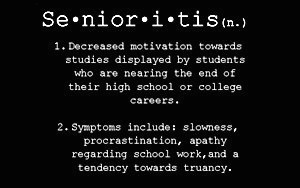A lot is riding on making a good college list. Your student will be applying to the schools on the final list so they better offer the best chance for student success. It’s so important that Wendy and I are giving our tips in two parts. Today’s Part 1 is about general criteria and next week’s Part 2 is about refining the list.
__________________________
 Parents of college-bound teens often ask this question in utter astonishment and trepidation. Following the paths of their peers or college notoriety can make for added stress and baffle and frustrate any parent when it comes to starting the college list. Their choices might also not be up to what you feel are your standards or choices, especially if you have your heart set on them attending your alma mater or a local college.
Parents of college-bound teens often ask this question in utter astonishment and trepidation. Following the paths of their peers or college notoriety can make for added stress and baffle and frustrate any parent when it comes to starting the college list. Their choices might also not be up to what you feel are your standards or choices, especially if you have your heart set on them attending your alma mater or a local college.
In spite of these obvious pitfalls, the conversation needs to begin and a preliminary list needs to be made. And with any good list, it’s important to ask your teen some serious questions, and then complete the responses.
What can the family afford?
Any list without this discussion is sorely lacking. It’s not prudent to add a college to the list when you know it’s unattainable for the family to finance. If the sticker price is high, and your EFC is high as well, it makes sense to steer clear of these colleges.
However, don’t discount a college solely on its sticker price. If your student is a top candidate (and only if), it’s possible they could receive substantial merit aid or scholarships. But don’t add a school to the list that attending will require substantial student loans if the aid doesn’t materialize.
What do you want to study?
It’s rare that high school students know what they want their career to be. But they do know what interests them and the type of degree they might want to pursue. Even though you may want them to be an aerospace engineer or a doctor, they may have their heart set on studying English literature and becoming a teacher. Don’t force them into a career just because you believe it pays well. Adults know that if you like your job, you will be happier and more successful.
However, you do need to have a conversation about pursuing a degree plan that might not be employable when they graduate. Even though a degree is a degree, finding work in a field of study that isn’t in high demand could have them working at a minimum wage job after graduation.
Where do you want to go to college?
Most students see college as a step toward independence, which usually translates into another state and as far away from home as possible. Don’t limit them to your home state or cities close by if they want to spread their wings and move further away. Additionally, if you limit their choices to your surrounding area (or a state college), you could be neglecting some excellent colleges choices. Be open to all options that fall within your financial capability, even if it means they are not as close to home as you would prefer.
What type of surroundings appeal to you?
There are so many levels to explore when asking this question. Does your student want to attend a small college or large university? Do they like an urban campus or a suburban one? Is the weather (climate) a factor? Is entertainment off campus a factor? Is Greek life, sports, or theater important? As you can see, exploring each of these questions further will help as you start the list and narrow down the choices.
Which college admission criteria do you meet or exceed?
This requires a little bit of research. If your student has less than stellar grades and standardized test scores, it’s not prudent to add MIT or Harvard to their college list. But, if their grades and scores meet those of qualified applicants and they have expressed interest in attending, consider adding that college to the list. Look at each college website, use CollegeData.com and the College Board’s site to determine what their average scores and GPAs are for accepted students. Don’t waste your time applying to schools that your student doesn’t have a chance to receive an offer of admission.
Be wise about choosing colleges that see them as top applicants, or at the very least, competitive with other applicants. Top applicants receive the most merit aid and scholarships. These colleges should go to the top of the list.
Before you balk at your student’s choices and say “absolutely not”, give them the courtesy of listening before you respond. After you listen, discuss your concerns and communicate those concerns without judgment or condemnation. Remember, they are the ones attending the college—not you. They should be the ones that make the list. Even if your choices are not their choices, it’s conceivable to find common ground and proceed with a final list.









